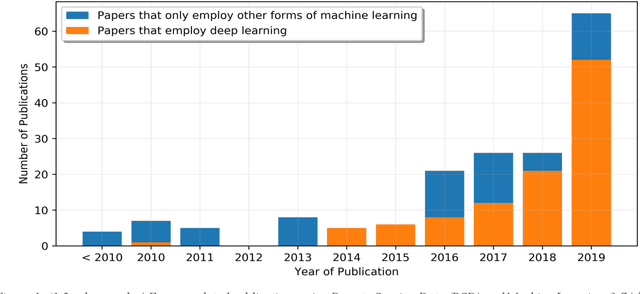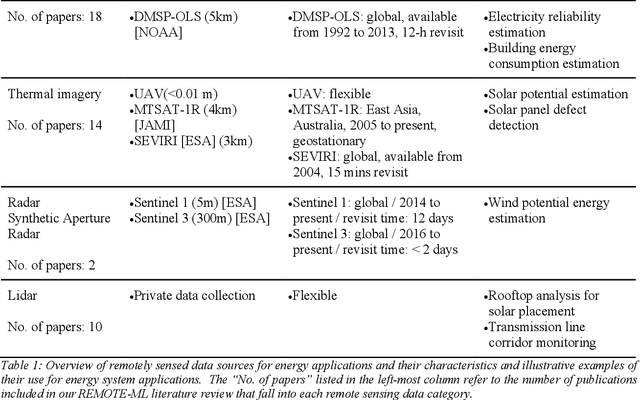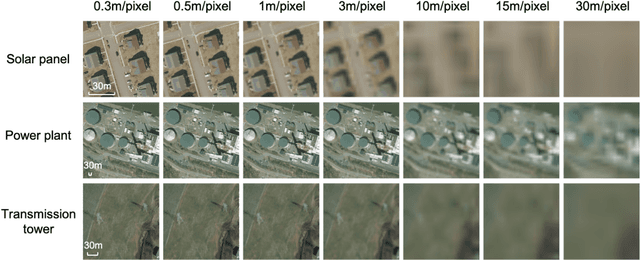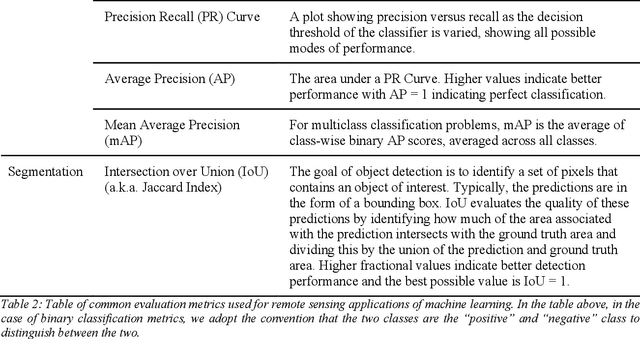Dylan Harrison-Atlas
Automated Extraction of Energy Systems Information from Remotely Sensed Data: A Review and Analysis
Feb 18, 2022



Abstract:High quality energy systems information is a crucial input to energy systems research, modeling, and decision-making. Unfortunately, precise information about energy systems is often of limited availability, incomplete, or only accessible for a substantial fee or through a non-disclosure agreement. Recently, remotely sensed data (e.g., satellite imagery, aerial photography) have emerged as a potentially rich source of energy systems information. However, the use of these data is frequently challenged by its sheer volume and complexity, precluding manual analysis. Recent breakthroughs in machine learning have enabled automated and rapid extraction of useful information from remotely sensed data, facilitating large-scale acquisition of critical energy system variables. Here we present a systematic review of the literature on this emerging topic, providing an in-depth survey and review of papers published within the past two decades. We first taxonomize the existing literature into ten major areas, spanning the energy value chain. Within each research area, we distill and critically discuss major features that are relevant to energy researchers, including, for example, key challenges regarding the accessibility and reliability of the methods. We then synthesize our findings to identify limitations and trends in the literature as a whole, and discuss opportunities for innovation.
 Add to Chrome
Add to Chrome Add to Firefox
Add to Firefox Add to Edge
Add to Edge